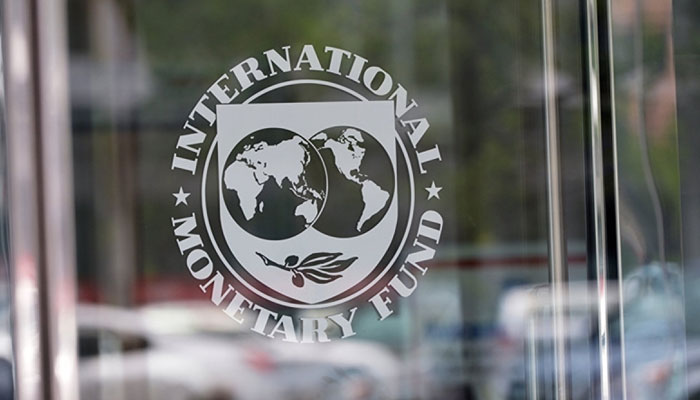$6 bn IMF programme: Govt needs to do electricity, gas tariff adjustments
ISLAMABAD: Even after approval of the budget for 2020-21 from Parliament, the IMF sponsored programme of $6 billion for Pakistan hangs in balance where Islamabad will have to comply with tariff adjustments on electricity and gas as well as to undertake reform path to evolve staff level agreement on completion of second review.
The IMF programme has literally been stalled at the moment and different options are under considerations to revive it and put on the track. “Although, the budget gets approved but there are still some pending issues such as tariff adjustments of gas and power, strengthening regulatory regime, autonomy to the State Bank of Pakistan, fiscal consolidation and way forward for achieving it on sustained basis,” top official sources confirmed to The News here on Friday.
Now for revival of stalled IMF programme, there are different options and one of them was skipping third review and clubbing second and fourth reviews under the IMF programme.
The possible argument of the IMF side for adoption of this option could be provision of Rapid Financing Facility (RFI) so third review should be skipped. Then the second and fourth reviews could be clubbed. The second review period was end December 2019 for which the IMF team had visited Islamabad in February 2020 just ahead of outbreak of COVID-19 and finally staff level agreement had also been reached. But after Corona, all economic fundamentals changed and the IMF provided $1.4 billion facility under RFI.
Now the period of third review was January to March 2020. The fourth review period was April-June 2020. Now Pakistani authorities had made last ditch efforts to convince the IMF for clubbing second and third reviews and submit it before the Fund’s Executive Boardwithin this ongoing month. “It seems that the IMF so far is unwilling to club second and third reviews without undertaking tariff adjustments and moving towards structural reforms for cash bleeding power sector, autonomy to the central bank, strengthening of regulatory regimes and fiscal consolidations at sustainable levels,” said the official sources.
When contacted to IMF’s Resident Chief in Pakistan Teresa Daban Sanchez for seeking her comments on Friday, she said, “The IMF team and Pakistani authorities remain closely engaged with the view to bringing the second review of the EFF (Extended Fund Facility) to a positive conclusion. There is not envisaged any interaction with the press during the discussions,” she added.
This scribe contacted to Pakistani side officials and found that no one was willing to talk anything on the record. However, the sources said that the IMF mission physically or virtually would initiate talks for completion of fourth review by next month (August) when the data of all macroeconomic fronts for end June 2020 would be available for completion of review. The IMF programme could be revived probably in September 2020 when its Board will meet for approving second and fourth reviews simultaneously provided Islamabad takes all required measures in accordance with the IMF programme, said the official.
Pakistani authorities are confident that the IMF programme would be revived as they presented budget for 2020-21 to comply with the IMF requirements. The budget deficit was curtailed at 7.1 percent and the primary deficit was slashed to negative 0.55 percent of GDP.
The non-development expenditure such as salaries and pensions were frozen in the budget. The oil prices were increased exponentially by charging maximum levy at rate of Rs30 per liter. All these steps, they argued, were aimed at reviving the stalled IMF programme anytime in near future, said the official sources.
-
 Kanye West's Last Measure To Save Bianca Censori Marriage As He Tries To Salvage Image
Kanye West's Last Measure To Save Bianca Censori Marriage As He Tries To Salvage Image -
 Kim Kardashian Finally Takes 'clear Stand' On Meghan Markle, Prince Harry
Kim Kardashian Finally Takes 'clear Stand' On Meghan Markle, Prince Harry -
 Christina Applegate Makes Rare Confession About What Inspires Her To Keep Going In Life
Christina Applegate Makes Rare Confession About What Inspires Her To Keep Going In Life -
 Patrick J. Adams Shares The Moment That Changed His Life
Patrick J. Adams Shares The Moment That Changed His Life -
 Selena Gomez Getting Divorce From Benny Blanco Over His Unhygienic Antics?
Selena Gomez Getting Divorce From Benny Blanco Over His Unhygienic Antics? -
 Meet Arvid Lindblad: Here’s Everything To Know About Youngest F1 Driver And New Face Of British Racing
Meet Arvid Lindblad: Here’s Everything To Know About Youngest F1 Driver And New Face Of British Racing -
 At Least 30 Dead After Heavy Rains Hit Southeastern Brazil, 39 Missing
At Least 30 Dead After Heavy Rains Hit Southeastern Brazil, 39 Missing -
 Courtney Love Recalls How ‘comparison’ Left Marianne Faithfull ‘broken’
Courtney Love Recalls How ‘comparison’ Left Marianne Faithfull ‘broken’ -
 Pedro Pascal Confirms Dating Rumors With Luke Evans' Former Boyfriend Rafael Olarra?
Pedro Pascal Confirms Dating Rumors With Luke Evans' Former Boyfriend Rafael Olarra? -
 Ghost's Tobias Forge Makes Big Announcement After Concluding 'Skeletour World' Tour
Ghost's Tobias Forge Makes Big Announcement After Concluding 'Skeletour World' Tour -
 Katherine Short Became Vocal ‘mental Illness’ Advocate Years Before Death
Katherine Short Became Vocal ‘mental Illness’ Advocate Years Before Death -
 SK Hynix Unveils $15 Billion Semiconductor Facility Investment Plan In South Korea
SK Hynix Unveils $15 Billion Semiconductor Facility Investment Plan In South Korea -
 Buckingham Palace Shares Major Update After Meghan Markle, Harry Arrived In Jordan
Buckingham Palace Shares Major Update After Meghan Markle, Harry Arrived In Jordan -
 Demi Lovato Claims Fans Make Mental Health Struggle Easier
Demi Lovato Claims Fans Make Mental Health Struggle Easier -
 King Hospitalized In Spain, Royal Family Confirms
King Hospitalized In Spain, Royal Family Confirms -
 Japan Launches AI Robot Monk To Offer Spiritual Guidance
Japan Launches AI Robot Monk To Offer Spiritual Guidance




